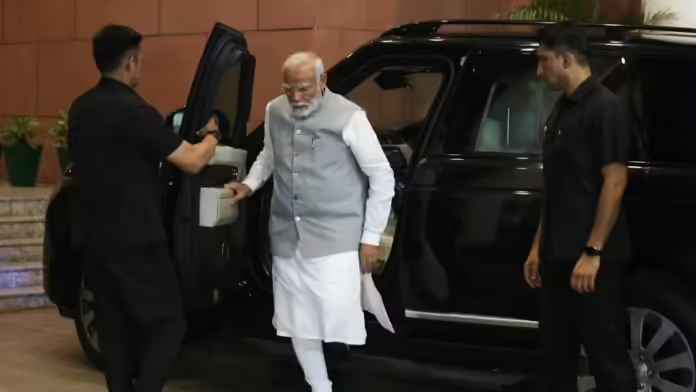For nearly a decade, Prime Minister Narendra Modi’s leadership has been marketed by the ruling BJP as the era of India’s emergence as a “Vishwa guru”—a source of global wisdom. The party’s massive propaganda machine has worked tirelessly to promote the narrative that India’s ascension on the world stage began with Modi, sidelining the international legacies of Jawaharlal Nehru and Indira Gandhi. In the eyes of Modi’s supporters, it is he who has made India a key player on the global map.
Events like the grand ‘Howdy Modi’ spectacle in Houston in 2019, with visuals of an ecstatic Indian diaspora cheering for Modi, helped cement this image. Modi’s portrayal as the ‘Covid savior’—sending vaccines to needy countries—added to the carefully crafted myth. There were images of Modi sitting on a swing with China’s Xi Jinping by the Sabarmati in 2014, and then hugging both Vladimir Putin and Volodymyr Zelenskyy, hinting at his perceived role in mending global conflicts.
But now, the “Vishwa guru” persona is being tested on the global stage. Canada’s Prime Minister Justin Trudeau recently accused the Indian government of being involved in the 2023 murder of pro-Khalistan leader Hardeep Singh Nijjar, setting off a diplomatic firestorm. Trudeau further alleged that a criminal gang, the Lawrence Bishnoi group, was carrying out violence on Canadian citizens, potentially with the knowledge of Indian officials. These accusations have left Modi’s carefully curated global image in question.
As the world watches, the cracks in the “Vishwa guru” myth are beginning to show.



